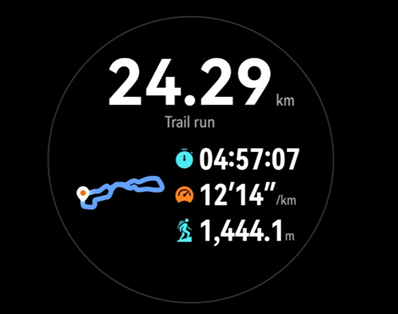Stephen Edberg
Introduction
He has won 42 singles and 18 doubles titles in his career (ATP). He was ranked No. 1 in the ATP singles year-end world in 1990 and 1991 /b> and the 1991 singles ATP world champion. His career was 806 wins and 270 losses in singles, 283 wins and 153 losses in doubles, with a total prize money of US$2063,0941.
In addition, Edberg also assisted Sweden to win three World Team Cups (1988, 1991, 1995), and he also helped to win four Davis Cup championships
< h2> YouthIn 1983, the 17-year-old Edberg won consecutive Australian Open, French Open, Wimbledon, and US Open youth championships. He is the only true Grand Slam winner in the youth division so far. . At this time, he began to contact Pace Rosberg, the famous coach who made Borg, and went to Stockholm to receive his training and guidance once a week. The cooperation in this period made Edberg's backhand progress by leaps and bounds.
He soon finished his high school studies and officially became a professional player. Edberg's career mentor is coach Tony Picard. They met when Edberg signed with Wilson and became partners for life. Their cooperation lasted for ten years, throughout his entire career. Under his guidance, Edberg, who looked thin and thin, launched an impact on the world's number one. In 1983, he won his first tour doubles runner-up in Basel, which was the first final of his career.
Rising period
Compared with the precocious Wieland, Edberg's success is a bit later. From 1982 to 1985, Wieland was already the winner of four Grand Slam men's singles titles. Edberg won his first two tournament singles titles in 1984: Milan Station and the Los Angeles Olympics Men’s Singles Demonstration Project; then at the end of 1985, he defeated Wieland in the Australian Open men’s singles final and won. The first Grand Slam trophy of his career. By early 1987, Edberg won the Australian Open men's singles again. During the three years from 1985 to 1987, Edberg's performance was stable, the world rankings also remained in the top ten, gradually matured, and the competitive state remained at a very high level; however, these three years are also Lundell In the era of dominance, no one can threaten King Lun, and Edberg is no exception.
1985-87 can be said to be Edberg's accumulation period. Although he did not pose a threat to the Lundell dynasty, he has accumulated countless valuable experience in the competition, and his skills and psychological qualities have also improved by leaps and bounds. Players who have grown up during this period are the West German Golden Boy Becker.
He and Becker are great rivals. Both are serve-to-net players. They are also the most powerful contenders at the Wimbledon grass game at the time; Absolute disadvantage (Edberg 10-25 Becker), but in the Wimbledon men's singles competition where the two reached the finals together, Edberg won two of the three consecutive finals.
In 1988, the Wimbledon men’s singles championship was won by Edberg. This year can be called the "Sweden Year" in the history of tennis. This is the first and only time ever. Edberg defeated the two-time Wimbledon men's singles champion Becker in the final. In the same year, he won two bronze medals in the men's singles and men's doubles in the Seoul Olympic tennis competition.
With the decline of Lendl, Wieland also fell rapidly. The battle between Edberg and Becker in 1988 at Wimbledon also opened the prelude to their grievances in the Warring States period.
1989 is undoubtedly the "Becker Year". Becker defeated Edberg in the Wimbledon Men’s Singles final this year and won the championship trophy for the third time; and in the US Open Men’s Singles In the final, he defeated the king Lendl and won the only U.S. Open championship gold cup in his career. Edberg lost one after another in the 1989 French Open and Wimbledon's men's singles final. He suffered setbacks in the four Grand Slams and was at a disadvantage in the competition with Becker.
At that time, he reached the final of the French Open men’s singles event. As a result, he lost to the Chinese-American player Zhang Depei in the final of the five-set battle and won the runner-up (score: 1-6, 6-3, 6). -4, 4-6, 2-6), the French Open has also become the only Grand Slam tournament in Edberg's career that has never touched the men's singles championship. He only won the championship in the ATP year-end tournament and saved a bit of face.
Classic
The road to defending Edberg's title in 1992 was recognized as the hardest in history. Starting from the fourth round (sixteen), he narrowly won three consecutive marathon matches until the final set.
In the round of sixteen, he was two sets behind in a Jedi counterattack (score: 4-6, 66-7, 6-3, 6- 3, 6-4), defeated the Dutch heavy gunner Kragisek who will become the Wimbledon men's singles champion in 1996.
In the quarter-finals, he also had a breathtaking tie-break in the fifth set (score: 6-3, 6-3, 3-6, 5-7, 7-6< sup>3) Barely repelled the overlord Rendel.
He faced Zhang Depei in the semifinals even more difficult. This five-set match played the longest game in the history of the U.S. Open and took five hours and twenty-six points (score: 6 3-7, 7-5, 7-63, 5-7, 6-4), these three games took a total of 13 hours and 43 minutes.
His final opponent was Sampras, who was the champion of 1990 and will become the dominance of men’s tennis in the 1990s, and the time of the game was Super Saturday of the U.S. Open special system, against Edberg’s Physical fitness is the most severe test. In the final, however, Edberg still relied on his rich experience in the competition and his unique skills to serve to suppress Sampras. In contrast, Sampras not only failed to grasp the physical fitness and the host advantage in this final, perhaps because of Samp Lars’ parents went to see Sampras playing in the finals for the first time and were extremely nervous. They made mistakes at a critical juncture, especially in the third set tiebreak and made a fatal double error which caused the loss of the key set and lost morale. As a result, Edberger With a total score of 3-6, 6-4, 7-65, 6-2, he defeated Sampras and won the championship in four sets. Sampras also lost the game, which inspired his determination to become the best player in men's tennis.
In fact, Edberg was also the nemesis of Sampras in his early career. In the 1993 Australian Open men's singles semi-finals, he defeated the future king again.
The peak period
In 1990, Edberg finally ushered in the peak of his career. Although he withdrew from the Australian Open men's singles final due to a stomachache, Lendl was able to successfully defend his title, but in the 1990 season, Edberg won one stop after another tour victory, the points skyrocketed and seriously threatened Lun. Del’s throne; including in the Wimbledon Championships in July, Edberg and Becker met in the men’s singles final for three consecutive years. This time the champion returned to Edberg’s hands. He successfully defeated Becker and reported However, he was defeated last year and won Wimbledon for the second time. Soon he also replaced Lendl as the new world number one. Edberg won seven tournament singles titles that year, and he truly became the ATP singles year-end champion.
Edberg reached the summit and completely ended the long Lendl dynasty. After that, Lendl never returned to No. 1 in the world, and his competitive level was also declining, and there was no flash of light until he retired. When Edberg was crowned the king, the world tennis scene also took on a new look. Edberg successfully defeated Becker in 1990 and won the year-end world number one. The era of Lendl's dominance is over. The ensuing 1991 was a peak period of competition between Edberg and Becker.
Becker first won the Australian Open men's singles in early 1991, catching up on points and quickly ousting Edberg from the throne and replacing him. But only 3 weeks later, Becker was quickly torn from the throne of the ball by Edberg. In July of this year, Becker reached the finals in the Wimbledon men’s singles for four consecutive years. Although he lost to compatriot Stich and only won second place, it was enough to make him surpass Edberg again in points. Return to the throne. Edberg was not resigned to future generations. In the men’s singles final of the US Open in September, Edberg defeated Courier (Courier) who had the advantage of the home court. After giving up the throne 9 weeks later, Edberg regained the throne. Becker regained the throne. After that, Edberg never gave Becker any chance and held the world's number one ranking firmly in his hands. It was not until February 1992 that he was taken away by the mighty Corrier (Courier).
Becker once said that Edberg is the biggest opponent of his career. It was Edberg's existence that shattered Becker's dream and hope of becoming a tennis supremacy. Becker also missed the year-end number one because of Edberg's summit. Becker has only been ranked No. 1 in the world in only twelve weeks of his career.
However, the Edberg dynasty did not last for a long time. By 1992, with Edberg losing to Courier (Courier) in the Australian Open men’s singles final, his status was also Precarious. In February, Courier (Courier) also replaced Edberg as the new world number one. Courier (Courier) has secured the throne after winning the French Open men’s singles again. The two have changed their thrones many times. Edberg also surrendered the throne on October 4 of the same year. Back to the world's number one.
Professional late
In the 1993 Australian Open men’s singles match, Edberg made it to the final again, but he lost to Courier (Courier) again. . Since then, Edberg has also started to go downhill, until his retirement in 1996, Edberg never performed well in the competition. Between 1993-95, he won only five minor championships in the ATP men's singles competition: Madrid in 1993, Doha in 1994, Stuttgart Indoor, Washington and Doha in 1995.
Because Edberg is very good at the game, he rarely argues with referees and opponents, and is hailed as a "gentleman" by the circle. Therefore, he has won the International Professional Tennis Federation Sportsmanship Award five times ( 1988-90, 1992, 1995), the International Professional Tennis Federation later named the Sportsmanship Award in recognition of the most sportsmantic player of the year.
In 1996, he teamed up with Czech player Kodak to win the Australian Open men’s doubles; he also reached the men’s singles final in the Queen’s Cup grass game, losing to old rival Becker and winning the runner-up. This is also his last appearance in the ATP Tour singles final; he announced his official retirement after the Davis Cup final. When he retired, he received a total of 20 million US dollars in prize money and a total of 60 ATP Tour singles and doubles titles.
In 2004, he was introduced to the International Tennis Hall of Fame.
He was the 14th among the 40 greatest players named by Tennis Magazine in 2005.
In 2008, he announced his participation in the Black Rock Tour of Champions.
In the Australian Open in 2014, he served as the coach of Roger Federer. He is also one of the latter's childhood idols.
Grand Slam
Men's Singles Championship
Year | Competition | Venue | Final opponent | Score | p>
1985 | Australian Open | Grass | Wieland | 6-4,6-3,6-3 |
1987 | Australian Open | Grassland | Kash | 6-3, 6-4, 3-6, 5-7, 6-3 < /td> |
1988 | Wimbledon | grass< /p> | Becker | 4-6, 7-6(2), 6-4, 6-2 |
1990 | Wimbledon | Grass | Becker | 6-2, 6-2, 3-6, 3-6, 6-4 |
1991 | US Open | < p>Hard ground | Courier | 6-2, 6-4, 6-0 |
1992 | US Open | Hard ground | Sampras | 3-6, 6-4, 7-6(5), 6-2 |
Men's singles runner-up
Year | Competition | Venue | Final opponent | Score |
1989 | French Open | Red clay | Zhang Depei | 6-1, 3-6, 4-6, 6-4, 6-2 |
1989 | Wimbledon | Grass | Becker < /td> | 6-0, 7-6(1), 6-4 |
1990 < /td> | Australian Open | Hard Ground | Lundell | 4-6, 7-6(3), 6-2 |
1992 | Australian Open | Hard Ground | Courier | 6-3, 3-6, 6-4, 6-2 |
1993 | Australian Open | Hard Ground | Courier | 6-2, 6-1, 2-6, 7-5 |
Davis Cup
In addition to outstanding achievements in professional competitions, Edberg has also outstanding results in international competitions; he was the main member of the Swedish Davis Cup in the 1980s, when the Swedish team was in its golden age.
As a player in the 80s and 90s, Edberg led the Swedish team to the Davis Cup finals seven times (1984-89, 1994) and won 4 championships.
The 1984 final defeated the United States 4:1
The 1985 final defeated West Germany 3:2
The 1987 final defeated India 5:0
The 1994 final victory over Russia 4:1

Latest: Frog eye imaging








